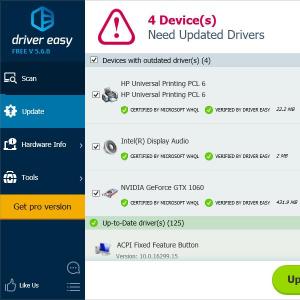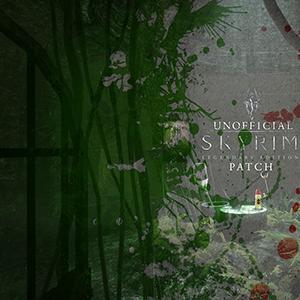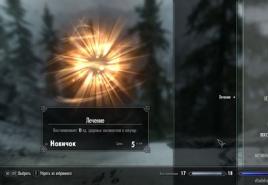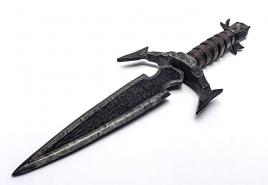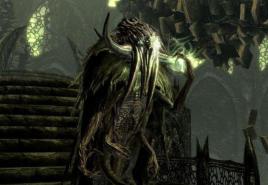Themes of self-education in kindergarten for FGOS. The plan for self-education of the educator on the topic: "" project activities as a means of developing the cognitive activity of preschool children in the context of the introduction of the FGOS before
Self-education is the purposeful work of a teacher to expand and deepen his theoretical knowledge, improve existing and acquire new professional skills and abilities in the light of modern requirements pedagogical and psychological sciences. The teacher must, during the school year or other period of time, deeply deal with the problem, the solution of which causes certain difficulties or which is the subject of his special interest.
One of the types of play activity is didactic play. This material is devoted to the problem: "the influence of didactic games on the pedagogical process in preschool educational institutions"
This problem is relevant, since the game for preschoolers is a way of knowing the environment. She takes a special place in the life of a child. In didactic play, conditions are created in which each child gets the opportunity to act independently in a certain situation and with certain objects, gaining his own sensitive experience.
View document content
Self-education plan
NOTEBOOK BY
SELF-EDUCATION
TEACHER

Municipal budgetary preschool educational institution
"Kindergarten" Snowflake "
Topic :
« Didactic game in pedagogical process DOE In accordance with Fgos to "
Educator: Khamaeva Valentina Vitalievna
3 years (work experience)
2015-2016 year
Topic: "Didactic game in the pedagogical process of a preschool educational institution in accordance with the Federal State Educational Standard of DO"
Relevance: A game for preschoolers is a way of learning about the environment. She takes a special place in the life of a child. In didactic play, conditions are created in which each child gets the opportunity to act independently in a certain situation and with certain objects, acquiring his own sensitive experience.
While playing, the child learns colors, shapes, material properties, spatial relationships, numerical relationships, studies plants and animals. " One of the types of play activity is didactic play. In this regard, I was interested in the problem: the influence of didactic games on the pedagogical process in preschool educational institutions
Goal: increasing professional competence in question "Didactic game in the pedagogical process in accordance with the Federal State Educational Standard"
Tasks:
- Analyze the psychological and pedagogical on this issue.
- To investigate the effectiveness of the use of didactic games in the pedagogical process.
- Develop a card index of didactic games for young children
- Create a corner of didactic games
Timing: academic year 2015–2016
Practical way out : creative report (presentation)

№
Teacher work
September - 2015
Ways, solutions
1
date
Study of the theory on the topic: "Didactic game in the pedagogical process of a preschool educational institution in accordance with the Federal State Educational Standard of DO"
"Planning work on academic year»
Acquaintance with the literature on this topic
2
Planning
Within a month

№
October - 2015
Teacher work
1
Ways, solutions
date
"Guess the profession"
Making an electronic interactive didactic multimedia manual
Exploring additional information
3
Using Internet resources in search of additional information on the topic under study
on the topic "Didactic game in the pedagogical process of a preschool educational institution in accordance with the Federal State Educational Standard of DO"
www.vio.fio.ru
ped-kopilka.ru
During a year
maaam.ru
nsportal.ru and etc.

№
Teacher work
November - 2015
Ways, solutions
"All professions are important, all professions are needed"
date
Didactic game in the pedagogical process of the preschool educational institution
using e didactic game
Open class
3
2
Creating an article for a personal site
27
Before 18
november
november

№
Teacher work
December - 2015
Ways, solutions
1
date
"The value of didactic play in the life of a child"
"Guess which tree the leaf is from"
Consultation
for teachers
2
Within a month

№
Teacher work
January - 2016
Ways, solutions
date
"Find a shadow"
"DIDACTIC CHEST"
1
Design a corner in the group, replenish it with games
Creating a didactic
junior benefits preschool age
Before 18
january
2
24
january

№
Teacher work
February - 2016
Ways, solutions
date
"Decorate the mitten"
1
Creation of a media library of electronic didactic games at a preschool educational institution
Creation of a didactic game for younger preschool age
"Didactic games"
Before 18
february
2
19
february

№
Teacher work
March - 2016
Ways, solutions
date
1
"Interesting nearby"
"Travel to the village of Tulgan"
Creation of a didactic game for older preschool age
Consultation for parents
2

№
Teacher work
April - 2016
Ways, solutions
date
"Fairy hedgehogs"
1
"Formation mathematical representations through a didactic game "
Creation of a didactic game for younger preschool age
Master Class
Up to 16
april
2

№
Teacher work
May - 2016
Ways, solutions
date
"Working on a presentation on the progress report on the topic of self-education for the academic year"
Speech at the teachers' council
1
"Didactic games for senior preschool children"
Creation of a methodical piggy bank
2

Getting started on this topic, I used the literature: .
- Gubanova N.F. Play activities in kindergarten. - M.: MOSAIKA SYNTHESIS, 2006. - 160 p.
- Bondarenko A.K. Didactic games in kindergarten. - M .: Education, 2012 .-- 174p.
- Wenger L.A. Didactic games and exercises for sensory education of preschoolers. - M .: Education, 2008 .-- 196s.
- Wenger L.A., Pilyugina E.G., Wenger N.B. Ed. Vengera L.A. Educating a child's sensory culture from birth to 6 years: A book for the teacher kindergarten - M .: Education, 2010 .-- 232s
- Pilyugina E.G. Sensory education classes. - M .: Education, 2008 .-- 168p.
- Sakulina N.P., Poddyakov N.N. Sensory education in kindergarten: Methodological guidelines - M .: Education, 2010. - 233 p.
- Elkonin D.B. Psychology of the game. - M .: Pedagogy, 1979 .-- 318s.
Electronic resources
Sample topics of self-education preschool educators1. Activation of the vocabulary of children of the younger age group.
2.Influence directly educational activities on the game
young children.
3.The influence of the oral folk art on the development of the speech of children 3-4 years old.
4. The upbringing of preschoolers through work.
5. Education of moral qualities in preschool children
through the Russians folk tales.
6. Didactic game as a form of teaching young children.
7. Didactic games in teaching children the basics of mathematics.
8. Spiritual and moral education of preschoolers.
9.Spiritual and moral education of children through reading
fiction.
10. Play as a means of communication for preschoolers.
11. Play activities of children at the stage of transition from early childhood
to preschool childhood.
12.Using health-saving technologies in the first
junior (second junior, middle, senior) group.
13. Using educational games in the classroom in mathematics
with children of younger (middle, senior) preschool age.
14.Using a variety of unconventional painting techniques
working with children 2 - 3 years old.
15. Personality-oriented approach in the upbringing of preschoolers.
16.Methodology for the formation of correct posture and its prevention
disorders in preschoolers.
17. Folk outdoor games in the physical education of preschoolers.
18. Recreational gymnastics after naps, its meaning.
19. Organization of work in a preschool educational institution on patriotic education.
20.Patriotic education of preschoolers by means
visual arts.
21. retelling works of art using pictures.
22. Outdoor play as a means of developing speed and agility in children
junior (middle, senior) preschool age.
23. Educational and research activities in implementation
educational area "Cognition"
24. Rules road traffic for preschoolers.
25. Techniques of activation mental activity during
introducing children to nature.
26. Project activities with children of junior (middle, senior)
preschool age.
27. Project method in the spiritual and moral education of preschoolers.
28. Development of dialogical communication of children in a group of different ages
(4-7 years old).
29. Development of play activity in young children.
30. Development math skills preschool children
through play activities.
31. Development fine motor skills preschoolers.
32. Development of fine motor skills in preschool children through
non-traditional drawing technique.
33. Development of cognitive activity of preschoolers.
34. Development of search and research activities of preschoolers
in the process of experimenting.
35. Development of speech of children of early and junior preschool age.
36. Development of sensory abilities of preschoolers.
37. Development of sensory abilities through
didactic game.
38. Development of children's creative abilities in visual
activities.
39. Development of creative abilities of preschoolers by means
puppet theater.
40 Speech development of preschoolers
41. The role of the motor regime for the health of preschoolers.
42. The role of play in the physical development and health promotion of a preschooler.
43. The role of the puzzle in the development of the preschooler.
44. The role of the family in the upbringing of preschool children.
45. Fairy tale as a means of spiritual and moral education of preschoolers.
46. \u200b\u200bModern approaches to the implementation of the tasks of the educational field
"Cognition".
47. Theater - as a means of forming coherent speech of preschoolers.
48. Theatrical activity as a means of developing creative
the personality of the child.
49. Physical development of children in play activities.
50. Physical culture and health work with children.
51. Formation of communicative qualities in children
junior (middle, senior) preschool age.
52. Formation of communicative qualities in older children
preschool age through communication with nature.
53. Formation of a culture of health in preschool children.
54. Formation of the beginnings of the ecological culture of preschoolers.
55. Formation of the foundations of pedagogical skills.
56. Formation of patriotic feelings among preschoolers.
57. Formation of speech of children in play activities.
58. Fiction as a means of all-round development
preschooler.
59. Artistic and speech development of children through joint
10. Play as a means of educational activity in the context of the implementation of the Federal State Educational Standard.
11. Play as a means of communication for preschoolers.
13. Use of health-saving technologies in the first
junior (second junior, middle, senior) group.
14. Using an educational game during math nodes
with children of younger (middle, senior) preschool age.
15. Using a variety of non-traditional painting techniques
working with children 2 - 3 years old.
17. Methodology for the formation of correct posture and its prevention
disorders in preschoolers.
18. Folk outdoor games, their importance in the physical education of preschoolers.
19. Enriching the social experience of preschoolers in kindergarten and family settings.
20. Recreational gymnastics after a nap, its meaning.
21. Organization of work in a preschool educational institution on patriotic education.
22. Patriotic education of preschoolers by means
visual arts.
23. Retelling works of art using pictures.
24. Outdoor play as a means of developing the physical qualities of children (middle, senior) preschool age.
26. Traffic rules for preschoolers.
27. Techniques for enhancing mental activity in the process
introducing children to nature.
28. Project activities with children of junior (middle, senior)
preschool age.
29. The project method in the spiritual and moral education of preschoolers.
30.
Developing games as a means of forming cognitive
abilities of preschool children.
31. Development of dialogical communication of children in a group of different ages
(4-7 years old).
32. Development of play activity in young children.
33. Development of communication skills of older preschoolers through
communication with nature.
34. .
35. Development of mathematical abilities of preschool children
through play activities.
36. Development of fine motor skills in preschoolers.
37. The development of fine motor skills in preschool children through
non-traditional drawing technique.
38. Development of cognitive activity of preschoolers.
39. Development of search and research activities of preschoolers
in the process of experimenting.
40. Development of speech in children of early and junior preschool age.
41. Development of speech - lessons in rhetoric and speech etiquette.
42. Development of sensory abilities of preschoolers.
43. Development of sensory abilities through
didactic game.
44. Development of children's creative abilities in visual
activities.
45. Development of creative abilities of preschoolers by means
puppet theater.
46. \u200b\u200bSpeech development of preschoolers
47. The role of the motor regime for the health of preschoolers.
65. Formation of children's speech in play.
67. Artistic and speech development of children through joint
theatrical activities of children and parents.
68. Environmental education of children in kindergarten.
69. Ecological development of children in the younger (middle, senior)
age group.
Municipal budgetary preschool educational institution kindergarten No. 8, Rostov-on-Don
TRAINER'S FOLDER
ON SELF-EDUCATION
Mogilina Alena Alexandrovna
(FULL NAME.)
educator
(Position )
Topic:
"Play activities of preschool children".
GENERAL INFORMATION ON THE THEME OF SELF-EDUCATION.
Topic : Play activities of preschool children.
Relevance of the topic:
The main activity of preschool children is play. In the process of playing, the child's spiritual and physical strengths develop: his attention, memory, imagination, discipline, dexterity, etc. In addition, play is a unique way of assimilating social experience, characteristic of preschool age.
In play, all aspects of the child's personality are formed, significant changes take place in his psyche, preparing the transition to a new, higher stage of development. This explains the enormous educational potential of play, which psychologists consider the leading activity of a preschooler. A game for preschoolers is a way of learning about the environment. While playing, he studies colors, shapes, properties of materials, plants, animals. Through play, the child enters the world of adults, masters spiritual values, and assimilates previous social experience. In the game, the child receives for the first time a lesson in collective thinking.
Self-education goal:
Improving pedagogical competence.
Tasks:
through play activities.
activity.
game activity.
PERSONAL PERSPECTIVE PLAN
ON SELF-EDUCATION
Working with documents.Study of the law "On Education", other regulatory documents
Acquaintance and analysis of documentation.
Improving pedagogical competence
Planning work with children for the new school year.
Study of literature on the problem, creating a work plan.
Raise the level of pedagogical knowledge.
Selection of material
Publication of material
“Consultation for educators. Development of the game activity of preschoolers "
Study of literature on the topic.
Selection of material
Exchange of experience on the problem.
October
Development didactic material felt for playing
"Pets"
Internet resources
Through the game, study body parts, modes of movement. Who eats what and how he speaks. Word formation (name it affectionately, one-many, etc.). Drawing up phrases, sentences, stories.
November
O. A. Stepanova "Development of the child's play activity"
Acquaintance with literature.
Analysis and consideration of the game as a form of organizing the life of preschool children
Development of a didactic game for healthy lifestyle
"Be healthy"
Selection of material on the topic.
Internet resources.
Explore, develop and enrich children's play experiences
December
Making a didactic game "Food"
Internet resources
Development of play activity of preschoolers
Work on the topic
"Classification of theatrical games"
Selection of material on the topic.
To improve moral and communicative qualities, creativity, mental processes through various forms of theatrical play.
January
Working on the creation of methodical folders.
Selection of material.
Accumulation of experience
Development of a game project for a role-playing game
"Children's Cafe"
Internet resources
To form in children the ability to play the role-playing game "Children's Cafe".
February
Development of the development manual "Seasons: Tree"
Selection of material.
Internet resources.
Familiarization of children with seasonal changes in nature, consolidation of counting, composition of number, color, development of fine motor skills
Development of a file cabinet
Children's Team Building Games
Selection of material
To teach to establish trusting contact with each other, to provide mutual assistance, to listen to the opinion of a partner.
March
Study of methodological literature
"Fun games at the kindergarten site"
Reading literature, selection of material.
To form a system of consciously correct ecological ideas about nature.
Work on a card index of FEMP games
Selection of material
Development of intellectual abilities.
April
Development of a didactic felt game "Cosmos"
Internet resources
To consolidate and systematize children's ideas about space, vehicles for its exploration and astronauts
Development of file cabinets:
outdoor games;
role-playing games;
finger games;
didactic games.
Selection of material
Comprehensive development of the child
May
Work on a card index of didactic games on patriotic education
To form an idea of \u200b\u200bstate symbols, the world around us, and a small homeland.
Development of a plan for self-education for the new academic year.
Selection of methodological literature
Report on the topic of self-education.
Topic: Game activity of preschool children.
I decided to take the topic of self-education "Play activities of preschoolers in the context of the introduction of the Federal State Educational Standard of preschool education." I started my work on the topic from the senior preschool age.
Compiled personal long-term plan on self-education.
I studied the regulatory documents:
Letter of the Ministry of Education of the Russian Federation of 05.17.1995 No. 61 / 19-12 "On the psychological and pedagogical requirements for games and toys in modern conditions" (Text of the document as of July 2011)
Letter of the Ministry of Education of the Russian Federation dated March 15, 2004 No. 03-51-46in / 14-03 "Approximate requirements for the content of the developing environment of preschool children brought up in a family"
Federal Law of the Russian Federation of December 29, 2010 No. 436-FZ "On the Protection of Children from Information Harmful to Their Health and Development" (as amended by Federal Law No. 139-FZ of 28.07.2012)
Order of the Ministry of Education and Science of Russia dated October 17, 2013 No. 1155 "On the approval of the federal state educational standard preschool education ". Registered with the Ministry of Justice of the Russian Federation of November 14, 2013 No. 30384
Resolution of the Chief State Sanitary Doctor of the Russian Federation of 05/15/2013 No. 26 "On approval of SanPiN 2.4.1.3049-13" Sanitary and epidemiological requirements for the device, maintenance and organization of the mode of operation of preschool educational organizations "
I studied the methodological literature on this topic.
O. A. Stepanova "Development of the child's play activity".
"Fun games at the kindergarten site."
V.A. Derkunskaya "Games-experiments with preschoolers".
V.A. Derkunskaya, A.G. Ryndina "Gaming techniques and communication games
for senior preschool children ".
O. A. Skorlupova, L.V. Loginova. Pedagogical guidance of children's games
preschool age.
OV Dybina. "Game technologies for familiarizing preschoolers with
the objective world ".
N. Lunin. "We play with letters and words."
E. Volkova "We Play Scientists".
Defined:
1.
factors of the game implementation:
- establishing a meaningful connection between the knowledge of children about the surrounding reality (the content of the cognitive sphere) and their play;
Inclusion of all types of games in the pedagogical process;
Timely organization of the developing subject-game environment;
Qualified participation of teachers in the pedagogical process, ensuring the child's right to play;
Individual approach to education, training, development of children in play activities;
Long-term planning of game development (integrated method);
Using effective methods and techniques to promote the development of the game
2.
conditions for the effectiveness of the development of the game:
-free and voluntary inclusion of children in the game;
Children should understand well the meaning and content of the game, its rules,
the idea of \u200b\u200beach playing role;
The game should have a positive effect on all areas of its participants;
Sufficient time to play and have the necessary
toys for the implementation of children's ideas;
When creating a play environment, one should take into account the gender differences of children;
Carry out a timely change in the gaming environment, taking into account
enriching life and play experience of children and in accordance with their
interests, mood
3. targets for GEF
The child shows initiative and independence in ... the game ... Able to choose his occupation, participants in joint activities, reveals the ability to embody a variety of ideas;
-… Actively interacts with peers and adults, participates in joint games. Able to negotiate, take into account the interests and feelings of others, empathize with failures and enjoy the successes of others, try to resolve conflicts;
The child has a developed imagination, which is realized in different types activities. The child's ability to fantasy, imagination, creativity develops intensively and manifests itself in the game.
The child owns different forms and types of play. Knows how to obey different rules and social norms, to distinguish between conventional and real situations, including play and educational;
Can fantasize out loud, play with sounds and words.
In her work, she used the exchange of experience on this topic with other teachers
.
To do this, I registered on the sites
:
http://pedrazvitie.ru
http://www.maam.ru
She took part in the competition "Play activities of preschoolers".
For the practical part, I set the following tasks:
-
Determination of the role of play in organizing the life of children.
The development of intellectual abilities in children through
application of gaming technologies.
- Creation of conditions for psychological and physical health
through play activities.
- Creating conditions for emotional well-being through the game
activity.
- Actively influence the comprehensive development of children through
game activity.
In order to study and enrich the experience of children, she created didactic manuals:
didactic material from felt for the game "Pets";
didactic game on healthy lifestyle "Be healthy";
didactic game "Food";
didactic game "Space";
Didactic guide "Road signs"
Development of the development manual "Seasons: Tree";
Development of a game project for the role-playing game "Children's Cafe".
In order to develop the play activity of preschoolers, I used these aids in play.
To gain experience, I worked on the creation of methodological folders:
outdoor games;
role-playing games;
finger games;
didactic games;
didactic games for patriotic education;
fEMP games card file;
rallying games for children;
classification of theatrical games.
Working on this topic of self-education, I made the following conclusions:
Play is a peculiar way of assimilating social experience, characteristic of preschool age.
The game is designed to solve general educational tasks, among which the tasks of forming the moral, social qualities of the child are of the first order.
The game, in older preschool age, should be of an amateur character and develop more and more in this direction, subject to the correct pedagogical guidance.
An important feature of play as a form of children's life is its penetration into various activities: work and play, learning activities and play, daily routine activities, and play.
Play is the most beloved and natural activity of preschoolers. Our task is to make play the content of children's life, to reveal to children the diversity of the world of play.
Teaching children is most successfully carried out in play, therefore play is the main form and content of classes.
But this does not mean that classes should be conducted only in the form of a game. Learning requires a variety of methods. Play is one of them, and it gives good results only when combined with other methods: observation, conversation, reading, etc.
An interesting game increases the child's mental activity, and he can solve a more difficult problem than in class.
Thus, play plays an important role in the life and development of children. In play activities, many positive traits child, interest and readiness for the upcoming teaching, his intellectual abilities... The game reflects and develops the knowledge and skills gained in the classroom, the rules of behavior are fixed, to which children are taught in life.
Using play as a form of organizing the life of children, we will try to make this life interesting, meaningful, easy for the entire children's team. So that there are situations in it that induce children to higher forms of social behavior and feelings. The value of the game lies not only in the fact that it expands the possibilities of cognition of the spheres of reality, but also prepares the younger generation for life in society
The game itself is a universal stimulant.
The main thing in maintaining the game interest is the teacher's sensitivity, observation, manifestation of a creative approach in organizing the game, the ability to interest the child in the game plot.
Teacher and educator belong to the category of those professions that require constant self-education and self-improvement. For example, no one will argue that today's children are completely different than in past decades. Realizing this, we build our work with them in a different way than the teachers who taught us. And in all other respects, we also try to keep up with the times. Learning new things, sharing useful experience, we create, we dare, we create. We teach others and learn ourselves.
The pages of this section contain ready-made plans, reports and self-education programs. They contain the current and promising experience of your colleagues on this issue. We are sure that it will be useful for you too.
We build our self-education using the positive experience of our colleagues.
Contained in sections:Showing publications 1-10 of 2188.
All sections | Self-education. Plans, reports on self-education
Self-education "Play as a means of communication for preschoolers" Municipal general education state-financed organization "Average comprehensive school "Kudrovsky TsO No. 1" Vsevolozhsky district of the Leningrad region DO No. 2 Educator Sidorenko Irina Evgenievna Self-education Topic : Play as a means of communication for preschoolers. goal: Creation ...
Work plan for self-education "Innovative forms of work with parents" Self-education for the 2018-2019 academic year Objective work: Continue to create conditions for a favorable climate of interaction with parents; establish trust and partnership with parents and involve families in a single educational space. Tasks: Create ...
Self-education. Plans, reports on self-education - Report on self-education "The influence of oral folk art on the development of speech of children 3-4 years old"
Publication "Report on self-education" The influence of oral folk art on ... " In the 2018-2019 academic year, I chose the topic for self-education "The influence of oral folk art on the development of the speech of children 3-4 years old." Today, I think this topic is quite relevant, since in our time the development of the media has greatly reduced ...
Library of images "MAAM-pictures"
Topic: "Formation cognitive activity in children through project activities ”Relevance: The meaning of project activities is that it helps to connect learning with life, forms research skills, develops cognitive activity, ...
Individual work plan for self-education Full name teacher Chemodanova Lidiya Olegovna Secondary vocational education Specialty educator Pedagogical experience 37 years Qualification category I category Continuing education courses GBOU DPO NIRO "Actual ...
Work plan for self-education of the educator for the 2019-2020 academic year Work plan for self-education of the Educator Tortumasheva Anna Anatolyevna For 2019 - 2020 academic year Subject: Artistic and aesthetic development of children using non-traditional techniques. Educational area: Artistic and aesthetic development Direction: manual labor Type ...
Self-education. Plans, reports on self-education - Report on self-education "Didactic play as a form of development of young children"
In the 2018-2019 academic year, I took the topic of self-education: "Didactic play as a form of children's development younger age". In the work of preschool institutions, didactic games play an important role. They are used both in joint and independent activities ...
A promising plan for the teacher's self-education "Didactic game as a form of development of young children" The topic is "Didactic play as a form of early childhood development." 2018-2019 academic year. Purpose: to improve professional competence in the implementation of didactic games in modern technologies. Tasks: - draw up a work plan on this topic; - to teach children to distinguish ...

